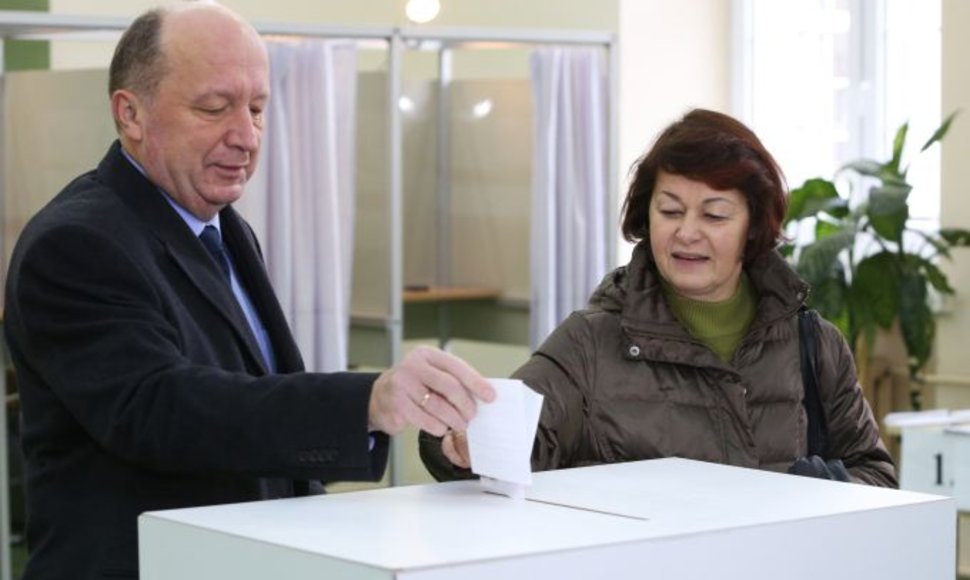After casting his vote in the second round of parliamentary elections in Vilnius on Sunday morning, he said that the three parties – the Labour Party, the Social Democrats, and the conservatives – could win a similar number of mandates in the polls.
"The most likely outcome is that the three parties will have a very similar number of mandates, and the coalition talks could be rather long; however, everything will be decided after today," Kubilius told journalists.
He recalled that 35 conservative candidates, including 23 who were leading after the first round of voting, were competing in the run-off ballot.
"Please be reminded that 35 of our candidates are running in the second round today. The Labour Party has 36, but ours are in lead in 23 electoral areas. The Labour Party, I think, had merely 13 leaders – the arithmetic says that today's elections may show that the forecasts made after the first round may not be entirely in line with reality," said the prime minister.
He refused to elaborate on possible coalition line-ups, saying that the conservatives would not join "non-transparent coalitions."
"And these elections showed, especially after the first round, that we definitely will not join non-transparent coalitions," he said.
The Labout Party was allegedly involved in a number of vote buying cases in the first vote two weeks ago.
Kubilius said he voted for "guaranteed continuation of good deeds," just like he did in the first round.
"This new Seimas will face major tasks, first of all – presidency over the European Union. Also continuity of fiscal discipline, continuity of energy projects, so these are the tasks that require experience, know-how and capacities. That is the Seimas I'm voting for," the prime minister said.
On Sunday morning, 67 single-mandate electoral areas started voting in the second round of parliamentary elections, with 134 candidates competing for mandates.












